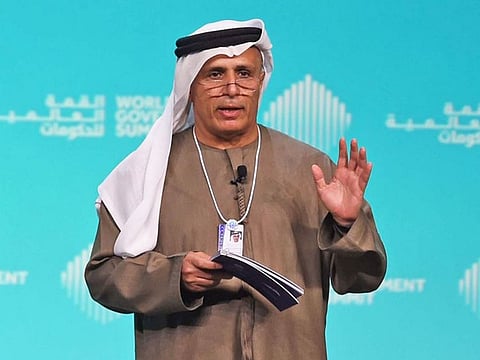Dubai in push to automate 25% of public transport by 2030
RTA chief Al Tayer says AI-driven Al Barsha Traffic Management Centre ready by mid-2020

Dubai: Will you be using an autonomous air taxi as your future mode of transportation? Well, when Mattar Al Tayer, director-general and chairman of the board of executive directors at Dubai’s Road and Transport Authority (RTA), posed this question at the World Government Summit on Monday afternoon, 79 per cent of those gathered answered in the affirmative.
Reassuring the 21 per cent that still had doubts, he said he was reminded of the launch of the driverless Dubai Metro in 2009, when only 40,000 passengers used it initially, a number that overnight grew to 120,000 with some reassurance, and to a record 650,000 with getting used to today.
Making a strong case for automated vehicles, Al Tayer said, “By 2030, 25 per cent of all transport in the UAE will be automated, 9 per cent of which has already been achieved with Dubai Metro.”
He said the Fourth Industrial Revolution (4IR), which was here to stay, had kick-started in a short span of 50 years since 3IR, in sharp contrast with the 100-year gap between the earlier stages of industrial revolutions.
“In September 2017, the UAE issued its strategy for 4IR. The focus was on nanotechnology, artificial intelligence [AI], smart devices and digital transactions in all sectors,” he said, pointing to how mobility was an essential component of the plan.
He said a new centre, which will use AI to meet its goals, is being set up in Al Barsha.
“The Al Barsha Traffic Management Centre will be ready by mid-2020, in time for Expo 2020,” he said, noting that the smart, automated systems at the centre will not only have the capability to support the management of such mega events, but also address issues concerning traffic movement, besides accidents and emergencies, like never before.
He said the future of transport in the UAE will see changes in the nature of commuting, with an increase in buses on demand (from two in 2018 to 12 in 2030) and car sharing (from 400 cars in 2018 to 1,400 in 2030).
Dubai, which issued a first of its kind guidebook on automated vehicles in 2018, has also entered into key partnerships with private players, including universities and the likes of Careem, to introduce several innovative measures, he added.
“Dubai will host the Dubai World Congress, a first of its kind meet for self-driving transport in October 2019, in addition to the Dubai World Challenge,” Ay Tayer said.
Al Tayer also touched on RTA initiatives such as E/N Ride, hybrid taxis, electric buses and electric taxis.
“Our initiatives have reduced fuel consumption by 285 million litres per year and carbon dioxide emissions by 5,000 tons annually,” he added.
Sign up for the Daily Briefing
Get the latest news and updates straight to your inbox


